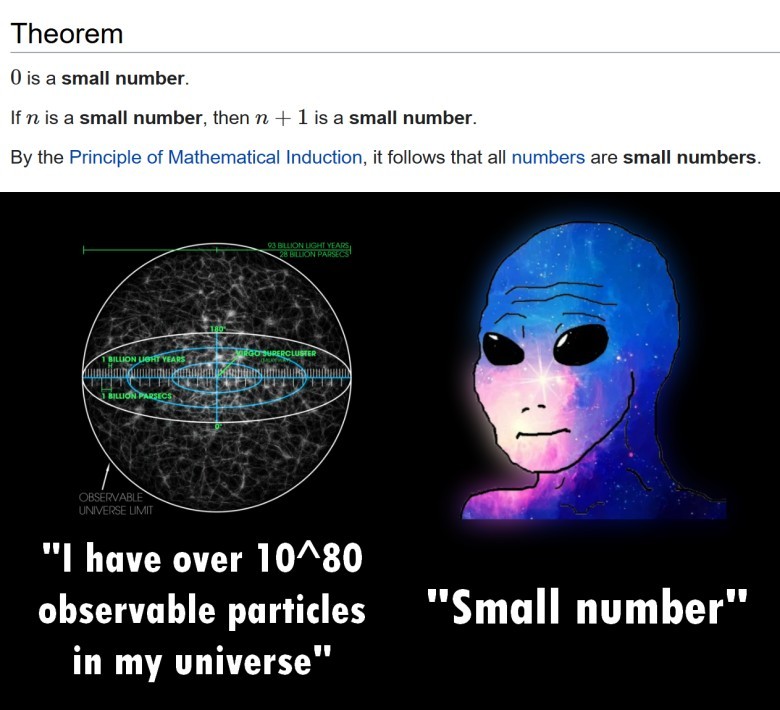views
particles. A clever take on philosophical "smallness" and cosmic scale, perfect for fans of science humor, philosophy, mathematics, and space exploration. This viral meme sparks thought on infinite vs. finite concepts and mathematical paradoxes, blending abstract logic with immense cosmic reality.

This meme cleverly juxtaposes a fundamental concept in mathematics, the Principle of Mathematical Induction, with the immense scale of the observable universe. The top panel presents a humorous "Theorem" that, through a flawed application of induction, concludes "all numbers are small numbers." It states: "0 is a small number.
If n is a small number, then is a small number. By the Principle of Mathematical Induction, it follows that all numbers are small numbers." This is a classic example of how induction, while powerful, can be misapplied if the definition of the property (in this case, "small") isn't robust or is relative.
The bottom left panel shows a diagram of the observable universe, highlighting its immense size (93 billion light-years) and mentioning the estimated number of observable particles, which is over 10^80. This colossal number stands in stark contrast to any intuitive understanding of "small."
The bottom right panel features the "Apu Apustaja" Wojak-style alien character, representing a bewildered or enlightened state, with the text "'Small number'". The humor lies in the dramatic irony and the philosophical paradox: how can something so astronomically large be considered "small" by a logical deduction, even if flawed? It highlights the human struggle to comprehend true scale and the potential for abstract logic to diverge from real-world perception.




















Comments
0 comment